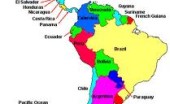Johannah Bernstein post: "eternally proud of my father’s extraordinary aeronautical engineering. legacy. here is a photo of the Canadair Water…
Wednesday Night #1531
Written by Diana Thebaud Nicholson // July 6, 2011 // Reports, Wednesday Nights // Comments Off on Wednesday Night #1531
“We aren’t going to get innovative ideas out of the present system – hence the idea of a public salon.”
Sam Sullivan, former Mayor of Vancouver B.C.
Sam Sullivan and his wife Lynne Zanatta more than lived up their advance billing. Their presence, along with that of Peter Trent, former Westmount City councillors Margaret Lefebvre and Herb Bercovitz and former Ville-St-Laurent councillor Yvette Biondi stimulated a lively discussion of the attractions and drawbacks of municipal politics. Necessarily any discussion of municipal politics leads to the relationship between Canadian municipalities and the other levels of government.
The Latin inscription over the entrance to the faculty of Law at McGill University translates to Hear the other side. Unfortunately, we too often listen uncritically to speakers who attract us with their words, appearance or promises of a better life. All too often, our elected representatives, or religious leaders with conflicting views act to divide, rather than unite the population. Although there are many exceptions, all too often, charisma outweighs skill in the election of public servants, especially the municipal level. Because the party system can tend to place the importance of the accumulation of “Brownie Points” above that of public interest, it is not in the best interest of the electorate at the municipal level.
Although at provincial and federal levels, a party philosophy may be necessary, at the municipal level, the ideal council would consist of a team of open minded representatives working together in the absence of party loyalty to solve local problems.
The budgets of larger cities become attractive targets for potential suppliers of goods and services to attempt to subvert the best interests of the citizens in favour of their own best interest. Municipal representatives need therefore to be aware of the pitfalls, and skilled in determining the public will, as well as in obtaining the best possible results from the expenditure of public funds.
Debate, consensus and the public will
If this assessment is accurate, the question inevitably arises as to how to determine the true nature of the public will, and how to separate historical and collective beliefs from objective logic. The most logical response appears to also be the most ancient, namely the Greek Agora. With the possible exception of bending to the will of a leader who claims to be the sole accredited interpreter of divine will, human beings will listen to and heed logic on hearing the various facets of an argument and arrive at a logical conclusion. Although peace, or at least, consensus, on the international, national, as well as the local level, appears elusive, some contemporary structures have proven successful in working to achieving it, including the New School of Athens and the Couchiching Conference. Here, personages meet on an equal level with citizens, debate, define and refine principles, finding logical answers to difficult problems. At the local level, Wednesday Night has met weekly for over 29 consecutive years, providing interactive debate on various subjects amongst individuals of highly varied professional and personal backgrounds and interests. The New School of Athens, the annual Couchiching Conference (this year’s topic “From the Ground Up: Civic Engagement in Our Time” is particularly relevant to the discussion) and Sam Sullivan’s Public Salon in Vancouver, although based on different formulae, have all moved closer to the agora model by facilitating the interaction between larger numbers of participants and the sharing of food as well as discussion through what in becoming known as a public salon, held in a theatre setting. One of the Vancouver Public Salon’s Sullivan’s fascinating proposed innovations is a screen on which texted messages will be posted instantaneously, in order to stimulate and widen debate.
In the absence of objective debate, it is certain that public indignation and anger are to be found everywhere, often expressed as targeting an enemy set up in order to distract attention from the very real problems, a straw man, as it were. There is said to be a world-wide infectious crisis of indignation, most evident in the uprisings in the Middle East and the astonishing, although comprehensible reaction of Greek citizens to recently introduced austerity measures. Witnessing the uncharacteristically drastic reaction by the Greek population brings into clear focus Wednesday Nighter Kimon Valaskakas‘ observation that think tanks are important but remain an illusion in the absence of a related “do tank.”
On a more hopeful note, across Canada there is some evidence of a movement or at least an attempt by people to communicate and understand differing viewpoints and culture; this stands in contrast to the divisive regionalism that is noted by Wednesday Nighters who frequently travel to other regions of the country. At the Peter and Melanie Munk debates at the Royal Ontario Museum, people at opposite poles come together for discussion; people in different areas of work, different outlooks, come together to debate and discuss. In Québec, the glass wall separating intellectual Anglophones and intellectual Francophones appears to be breaking down with interesting positive results. Languages appear to becoming far less a barrier to communication than formerly. On Canada’s west coast, more specifically, Vancouver, immigrants come from many diverse linguistic backgrounds, many speaking various Chinese dialects. It is surprising that not only does the increasing linguistic multiplicity not provide a barrier, but that there is said to be a significant desire among British Columbian immigrants to learn to speak French.
The market
Wednesday Night’s Resident Market Reporter reports that the market has started a new up-leg, that the down-leg has been discounted, that the market is now poised to rise and that an increasing number of bargains awaits discovery. A huge interest appears to be building in the oil stocks, followed by a matching interest in gold stocks. On a less cheerful note Canadian banks appear to be becoming more powerful, and gradually more similar to those in the U.S.
The Prologue
This Wednesday, we are delighted and honoured to welcome Sam Sullivan and his wife Lynn. Sam is the former Mayor of Vancouver and Canada’s Paralympic Ambassador, a remarkable and indomitable individual, and devoted salonista – he has been hosting a very successful series of public salons in Vancouver (see http://www.globalcivic.org/salons). This effort apparently grew out of a very similar concept to the early Wednesday Nights, although somewhat more structured than the free-flow we encourage/are unable to control.
As Sam is exploring the possibility of exporting the concept from Vancouver to Montreal and therefore is curious about how the Wednesday Night Salon functions – he has already participated in one of the West Wing WN sessions – we aim, with your help, to make it as diverse and diverting as possible.
In line with another reason that Sam is in Montreal (“I will be meeting some people who are involved in thinking about city development, especially related to market forces and density and environment”) is George Monbiot’s latest column Atro-city about urban sprawl: “Without policies to keep cities compact and urban densities high, they will begin to fail all over the world: logistically, socially and economically. Remember that, whenever anyone argues that we should weaken the planning laws to stimulate the economy.” There are more thoughts on Cities and Sustainability here including an entertaining piece from the March 4 Economist.
Also headlining the agenda will be Kimon Valaskakis, newly returned from Greece and France, with his views on the Greek Crisis. There has been a lively exchange on this topic through the website and will surely be more in the coming days as Kimon refines his thoughts further with a view to publishing a paper on the topic very shortly. We will have only a preview this week; he promises a full-blown discussion on the 13th.
While Kimon’s paper on the Greek Crisis is incubating, another Wednesday Nighter, Paul Shrivastava, co-authored a forthright (to put it gently) critique of Canada’s stance on climate change that was published in Saturday’s Gazette. Canada’s complacency on climate change is an embarrassment
Global warming is not going to go away by itself. And if our government has its way, Canada will remain part of the problem, rather than become part of the solution. In case you have trouble accessing the Gazette story (we are in despair over the impossibility of linking), we have published the entire article here We applaud Paul and his co-author, and would only add that as even the most serious topics need a little laughter, The Onion has a special take on renewables: Wind Farms May Blow Earth Off Orbit, Coal Lobby Warns
While Canada (with the exception of Quebec, whose general indifference is summed up in André Picard’s article) is totally absorbed in The Royals’ visit, events are continuing to unfold in the rest of the world. The results of the elections in Thailand appear to be something to cheer, but as is so often the case, there is the unpredictability of the military to consider. Gwynne Dyer has an intriguing piece On mortality and politics that warrants your attention. Meantime, while some of us were focused on Thailand, Morocco held a referendum on a new constitution curbing the King’s powers – reviews are mixed. The fate of the second Gaza Flotilla remains in doubt as the Middle East Quartet of Mideast mediators — the U.S., UN, EU and Russia — urged governments to discourage Gaza-bound flotillas that could escalate tension in the region. The activists organizing the flotilla aren’t giving up, however. And, as we continue to watch and try to understand developments in the Arab world (Lebanon, Libya, Syria …) we strongly recommend The Charlie Rose Series on Islam: Inside Islam – outstanding, serious expertise and much food for thought.
In the tradition of Wednesday Night’s focus on the economy – remember that once upon a time, it was referred to as the Wednesday Night Economic Salon – we call your attention to the recent summary of Bank Credit Analyst’s latest Special Report. The risk of a serious global growth slowdown has increased. However, economic activity is likely to accelerate in the second half of this year, which should allow the cyclical equity bull market to chug along. The rally in long-term Treasurys is overdone, and yields should increase over the coming months.
The Special Report in this month’s Bank Credit Analyst argues that the global savings glut is now bigger than ever. Large current account surpluses in China and other emerging economies, high levels of corporate savings and a return to the “Age of Thrift” in countries like the U.S. and the UK will ensure that the savings glut stays elevated for the foreseeable future. This, in turn, should be supportive for corporate bonds, dividend-paying stocks, and the dollar. (Thank you, Peter Berezin.)
As a guide to the discussion for those who are not economists/finance experts, we recommend Something About Tax Cuts Or Earnings Or Money Or Something In Recent Economic News published in The Onion of September 2010, and as valid today. Tony Deutsch comments: “There must be a lot of people to whom it all sounds like this. They are then called upon to vote on these issues. And they too, have one vote, like you and I.” Or perhaps, you would prefer to prepare yourself by following President Obama’s Twitter “town hall” meeting on the U.S. economy and jobs at 2pm on Wednesday? [Update: Obama’s Twitter Town Hall On Jobs Crashed By House Republicans



